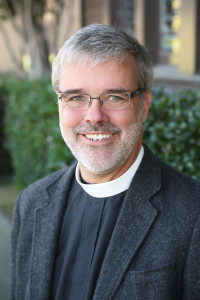
Menu

 The Rev. Dr. Bob Honeychurch, Interim Rector
The Rev. Dr. Bob Honeychurch, Interim Rector
Most of our Christian holidays have some antecedent in some other religious tradition. The date of Christmas is tied to the beginning of the season of winter and the shortest day of the year, as Northern European cultures celebrated the return of the light. Easter is tied to the Jewish festival of Passover. The Christian feast day of Pentecost also has its roots in the Jewish tradition. The Jewish name for the festival we call Pentecost is Shavuot, and commemorates the time when God gave Moses the Ten Commandments on Mount Sinai. The Greek name for that Jewish festival was “Pentecost”, meaning “fifty”, since Shavuot always falls fifty days after Passover.
As recorded in the second chapter of Acts, Jesus’ disciples (remember, they were all Jewish, just as Jesus was) had gathered for the festival of Shavuot (or Pentecost) fifty days after the Passover celebration during which Jesus had been crucified on a Friday (what we Christians call Good Friday) and resurrected two days later (on what we call Easter). It was during their celebration of Shavuot (or Pentecost) that the Spirit of God descended on them like tongues of flame, and they were “in-spired” (that is, filled with the spirit), and began speaking in ways that they were understandable to all of the people speaking different languages who had gathered in Jerusalem for the festival.
Thus began the connection today for people who have a “Pentecostal experience” and “speaking in tongues” (or “glossolalia”). So while “speaking in tongues” is not a broadly experienced phenomenon in the Episcopal Church (although it does indeed have a long history in our denomination), it does have a rich and biblical heritage extending back for many years.
Pentecost is sometimes referred to as the “birthday of the church”, as it is often understood that Jesus “completed” his work with his disciples by sending the Holy Spirit, and now it was their job to continue that work, empowered by the Spirit. In any case, it truly is a day to see that God had empowered the disciples – just as God continues to empower us today – to carry forward the message of God’s redeeming love to a world so desperately in need of receiving those healing words.